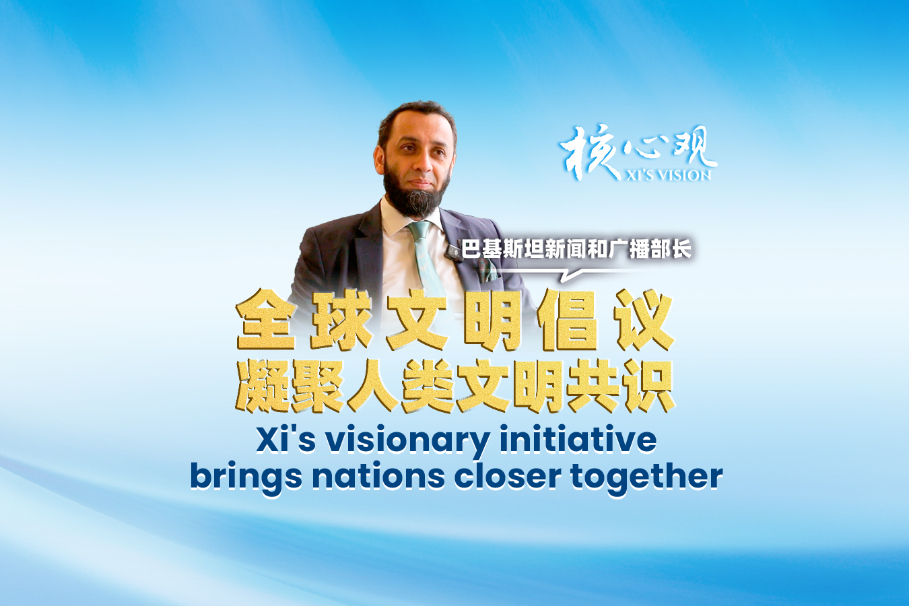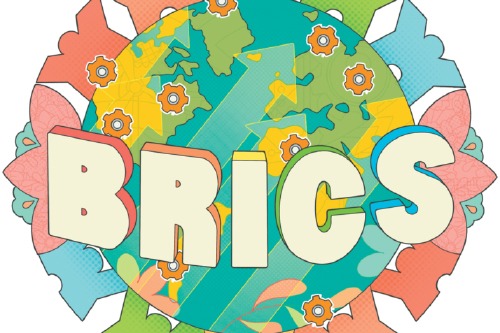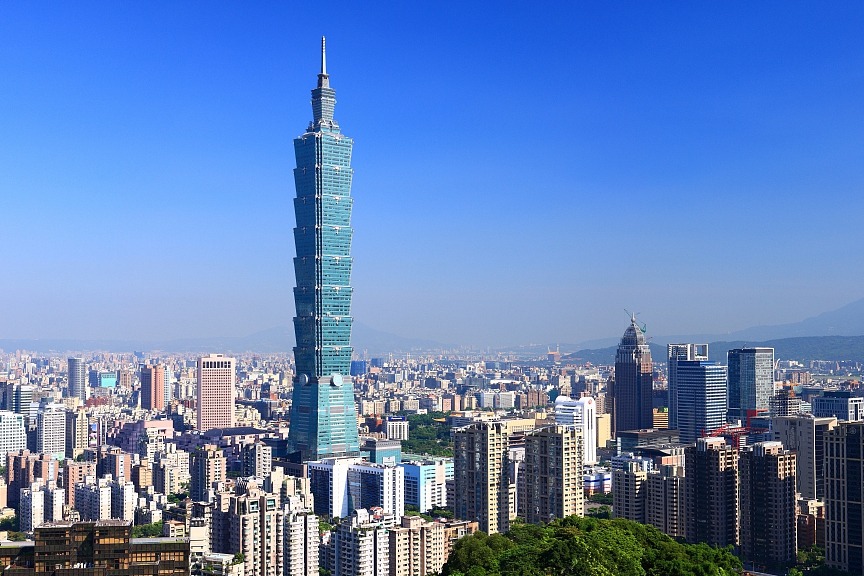Group progress


BRICS is contributing to building a just and inclusive new global order amid the tumultuous geopolitical landscape
Editor's note: The world has undergone many changes and shocks in recent years. Enhanced dialogue between scholars from China and overseas is needed to build mutual understanding on many problems the world faces. For this purpose, the China Watch Institute of China Daily and the National Institute for Global Strategy, Chinese Academy of Social Sciences, jointly present this special column: The Global Strategic Dialogue, in which experts from China and abroad will offer insightful views, analysis and fresh perspectives on long-term strategic issues of global importance.
The 2025 BRICS Summit was held in Rio de Janeiro on July 6 to 7 amid one of the most turbulent global contexts since the group's founding. The international stage is currently marked by multiple simultaneous crises. To name just a few: the resurgence of protectionism and the disruption of global value chains, especially following United States President Donald Trump's new wave of sweeping tariffs; the ongoing genocide in Gaza; Israel's and US' recent attacks on Iran; and the prolonged Ukraine crisis.
This unstable geopolitical scenario has coincided with a period of growth for BRICS. Over the past two years, the group has expanded from five to 11 full members, as well as 10 officially associated "partner countries". While this expansion boosts the group's geopolitical and economic relevance, it also raises a fundamental question: how can BRICS manage its internal diversity while maintaining the capacity to adopt joint positions? Without an effective coordination mechanism — particularly given the group's long-standing practice of consensus-based decision-making — there is a real risk of BRICS becoming just another "talk shop" on the international stage: a forum of statements without concrete action.
Some degree of institutionalization seems desirable, not only to organize the rights and duties of its members and preserve institutional memory, but also to ensure the continuity of work over time — since many initiatives launched during one presidency fail to carry forward into the next.
Economically, fiscal constraints limit the resources available for diplomatic initiatives, directly affecting the organizational dimension of Brazil's presidency. To make matters more difficult, the decision to shorten the preparatory calendar naturally reduced the time for articulation, hindering the development of sensitive yet crucial proposals — such as the de-dollarization agenda.
Against this backdrop, Brazil, which holds the rotating presidency of BRICS this year, has proposed six core priorities for global health; trade, investments and finance; climate change; artificial intelligence governance; reform of the multilateral architecture for peace and security; and the institutional development of BRICS itself.
Given the internal constraints, the broader geopolitical instability, and the strategic decisions made by the Brazilian presidency, the outcomes of the 2025 summit should be evaluated with nuance and caution. In this regard, the summit showed important progress, while also revealing persistent challenges.
In the field of global health, the highlight was the launch of the BRICS Partnership for the Elimination of Socially Determined Diseases — a particularly important initiative for vulnerable communities. On international trade, the group reaffirmed its discourse in favor of multilateralism, indirectly criticizing the US' unilateral tariff measures. On climate action, the BRICS expressed support for multilateral agencies and for the upcoming 30th Conference of the Parties (COP30) to the United Nations Framework Convention on Climate Change in the Brazilian city Belem.
Another key development was the debate on AI, where BRICS adopted a proactive stance, advocating for multilateral regulation, as well as the principles of digital sovereignty and the right to development.
In the field of peace and security, the group reiterated its traditional support for international law, human rights, humanitarian law and the role of the UN system — even while calling for reforms. These statements reflect a clear stance: BRICS aims to position itself as a stabilizing force in global governance, promoting multipolarity while upholding international norms.
In the financial and monetary domain, the results were mixed. BRICS reaffirmed its long-standing commitment to reforming the governance of the International Monetary Fund and the World Bank, emphasizing the need for greater participation of countries in the Global South. Notably, the group also introduced a new emphasis on increasing female leadership within these institutions.
As for the group's own instruments, two key developments stand out. Regarding the Contingent Reserve Arrangement (CRA) — a $100-billion fund created in 2014 to help member countries respond to balance of payments crises — there was an announcement of consensus on reviewing its treaty and operational regulations. This signals the group's intent to reduce dependence on the US dollar and improve risk management mechanisms — an important step toward "de-dollarization" and a reduced reliance on IMF frameworks. A special meeting on CRA expansion is expected in the second half of the year. These moves could help activate the mechanism and unlock its potential, lifting it out of the realm of symbolic politics.
The New Development Bank, under the leadership of President Dilma Rousseff, has also made some progress in addressing operational challenges. It has overcome some long-standing operational bottlenecks, including increasing disbursement rates and accelerating the admission of new members. In the past two years, the bank has approved the membership of Algeria, Colombia and Uzbekistan, reflecting the growing interest in joining the bank. A notable development was the announcement of the BRICS Multilateral Guarantees initiative, incubated as a pilot project within the NDB. This instrument seeks to reduce investment risks and thereby expand resource mobilization for sustainable infrastructure.
However, progress was more limited in sensitive areas. Proposals, such as the creation of an alternative payment system, new monetary arrangements and reforms to the credit rating agency ecosystem, were only discussed in general terms. This points to ongoing coordination challenges and a lack of consensus among member states — further complicated by the shortened calendar.
Similar obstacles were seen in the pursuit of institutional development. Expectations for deeper institutionalization were not fulfilled, as key proposals failed to gather sufficient political support. Nonetheless, one institutional improvement deserves mention: the functioning of the BRICS People's Council, officially launched at the 2024 Kazan Summit. In 2025, the Council played a crucial role in broadening democratic participation and elevating the voices of social and grassroots movements within the broader BRICS process.
BRICS still holds great untapped potential, particularly in the field of financial and monetary cooperation. The grouping can play an important role in reshaping the international monetary and financial system, which currently acts as a structural obstacle to the advancement of the sustainable development agenda. This system not only channels resources toward wealthy countries' markets but also fails to address the annual financing gap — estimated at over $4 trillion — faced by the Global South.
BRICS is best characterized as a group that advocates multipolarity with multilateralism — that is, for a more plural distribution of power coupled with respect for international law and global governance institutions. In this sense, BRICS positions itself as one of the main defenders of the international order, albeit reformed. This contrasts sharply with Western powers — particularly the US — which have increasingly adopted positions that undermine the very institutions they once championed.
There is little doubt that, in a world marked by urgent and complex challenges — from armed conflicts to the disruptive impacts of emerging technologies — BRICS offers, at this historical juncture, a relevant platform for dialogue, reform and collective action. If these initiatives are sustained and deepened — and if broader mechanisms for public participation are incorporated into the group's structure — BRICS could make a meaningful contribution to building a more just, inclusive and cooperative global order.
The author is a professor at University of Salvador and Federal University of Bahia in Brazil. The author contributed this article to China Watch, a think tank powered by China Daily.
Contact the editor at editor@chinawatch.cn.



































